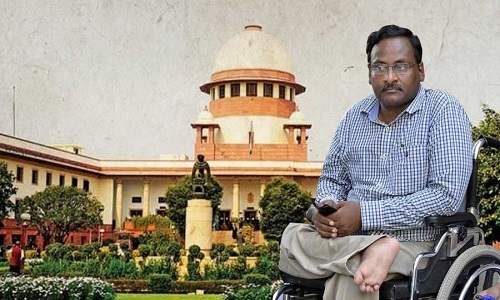SC upholds acquittal of G N Saibaba
| Date :12-Mar-2024 |

Staff Reporter
THE Supreme Court of India on Monday declined to stay the Nagpur Bench of Bombay High Court's judgment that acquitted former Delhi University professor G N Saibaba. Saibaba had previously been convicted and sentenced to life imprisonment in an Unlawful Activities (Prevention) Act case, with allegations linking him to Maoist activities. The Apex court, comprised of Justices Bhushan Gavai and Sandeep Mehta, expressed their initial impressions that the High Court's judgment, delivered on March 5, was‘very well-reasoned’. Stressing the legal principle of the presumption of innocence, the bench remarked, "Once there is an order of acquittal, that presumption gets fortified." The court added that interference with acquittal orders should be limited and cited the difficulty of challenging a "hard-earned acquittal," questioning the number of years Saibaba had already spent in jail.
The Maharashtra government had filed an appeal against the Nagpur bench's decision, seeking the Supreme Court's intervention.The apex court acknowledged that there were two orders of acquittal by different benches and, in ordinary circumstances, might not have entertained the appeal. However, given the court's past interference in the matter, they indicated a need to honor the previous decision. Justice Gavai commended the "very well-reasoned judgment" of the high court. On March 5, the Nagpur bench of the Bombay High Court had acquitted not only Saibaba but also five other co-accused who had been convicted by a trial court in 2017. The high court's judgment highlighted the prosecution's failure to prove its case and declared that the sanction under the Unlawful Activities (Prevention) Act (UAPA) as null and void.
It further stated that the entire prosecution case was tainted due to the invalid sanction. The high court pointed out serious flaws in the trial and cited a violation of mandatory provisions of law that amounted to a "failure of justice." It specifically noted the prosecution's inability to establish the legal seizure of material and the lack of incriminating evidence against the accused. Additionally, the court underscored that the mere possession of literature sympathetic to Maoist philosophy should not constitute an offense under the UAPA, and downloading Naxal material would only be an offense with specific, concrete evidence.